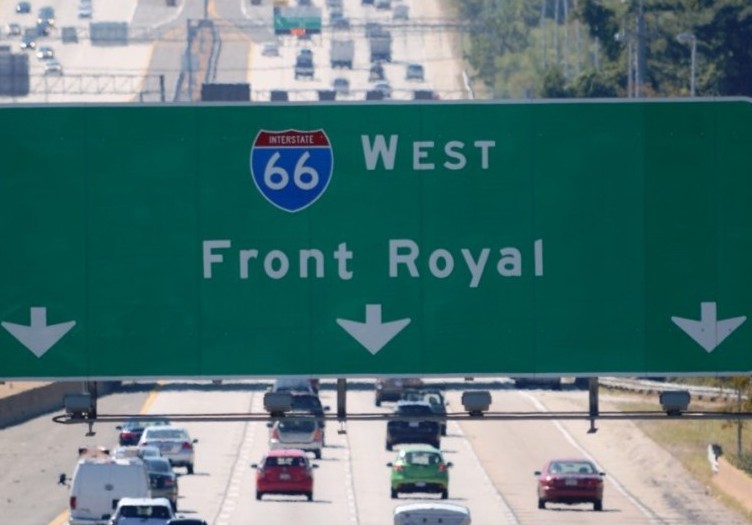ALEXANDRIA, Va. — After a lengthy and at times heated process, the two new toll lanes in each direction of Interstate 66 between Gainesville and the Capital Beltway will most likely be built as a full private concession, the commissioner of the Virginia Department of Transportation says.
At a meeting of the Commonwealth Transportation Board Tuesday, Charles Kilpatrick said that while a fully publicly financed project will remain an option if negotiations with three interested teams fall apart, a public-private partnership provides better value for Virginia.
There are still three teams involved in the competitive bidding process and Kilpatrick did not share many details about the different plans.
He says each of the three proposals would require less than $600 million in public funding, and none would involve any promises like those made during construction of the 95 Express Lanes that parallel roads would not see improvements.
The only major limit Secretary of Transportation Aubrey Layne says is that the Orange Line could not be extended for ten years, which he points out is highly unlikely to happen anyway. There would also be no cap on high occupancy vehicle usage like the one on the 95 Express Lanes, which forces the state to pay if carpooling efforts are too effective.
Inside the Beltway
The meeting Tuesday also included more details on a separate proposal to toll solo drivers and to expand the time period that HOV restrictions apply to the interstate east of the Beltway.
An agreement on how to spend the toll revenue generated from inside Interstate 495 is set to be approved by the board Wednesday.
Tuesday evening at George Mason High School in Falls Church, the Commonwealth Transportation Board reconvened to take public comments ahead of Wednesday’s vote.
There were strong opinions both for and against.
“Transform I-66 Inside the Beltway is the only workable solution that actually will get people moving again,” said Joe Vidulich, Vice President of Government Relations with the Fairfax County Chamber of Commerce.
James Mosely, a Herndon resident, spoke out against the plan.
“Tolling turns 66 into a road for the elite, and I just want to say that most people, we are not Donald Trump.”
Deputy Transportation Secretary Nick Donohue says the combination of the two projects will do more to alleviate congestion across the region than if either were to be done alone.
Ratings of various projects across the region showed that the outside the Beltway express lanes project rates high for congestion relief. The proposed changes inside the Beltway rank high on a cost-benefit analysis in large part because tolls are expected to finance the changes east of I-495.
The gross revenue from tolls collected inside the Beltway is expected to be about 70 percent of its peak in 2018 — the first full year of tolling. Donohue projects that revenue will be around $18 million, with $8 million to $10 million available for projects that can improve the toll-payers’ commutes.
Unlike the express lanes planned for the western stretch of I-66 toward Gainesville, the state will pay for the changes to implement tolls between the Beltway the D.C. line and will keep the toll revenue.
The inside the Beltway agreement includes triggers that would lead to the widening of I-66 eastbound between the Dulles Connector Road and Ballston as early as the 2020s.
Layne emphasized that the board could still decide to widen the road sooner if members are willing to take money away from other road projects.








